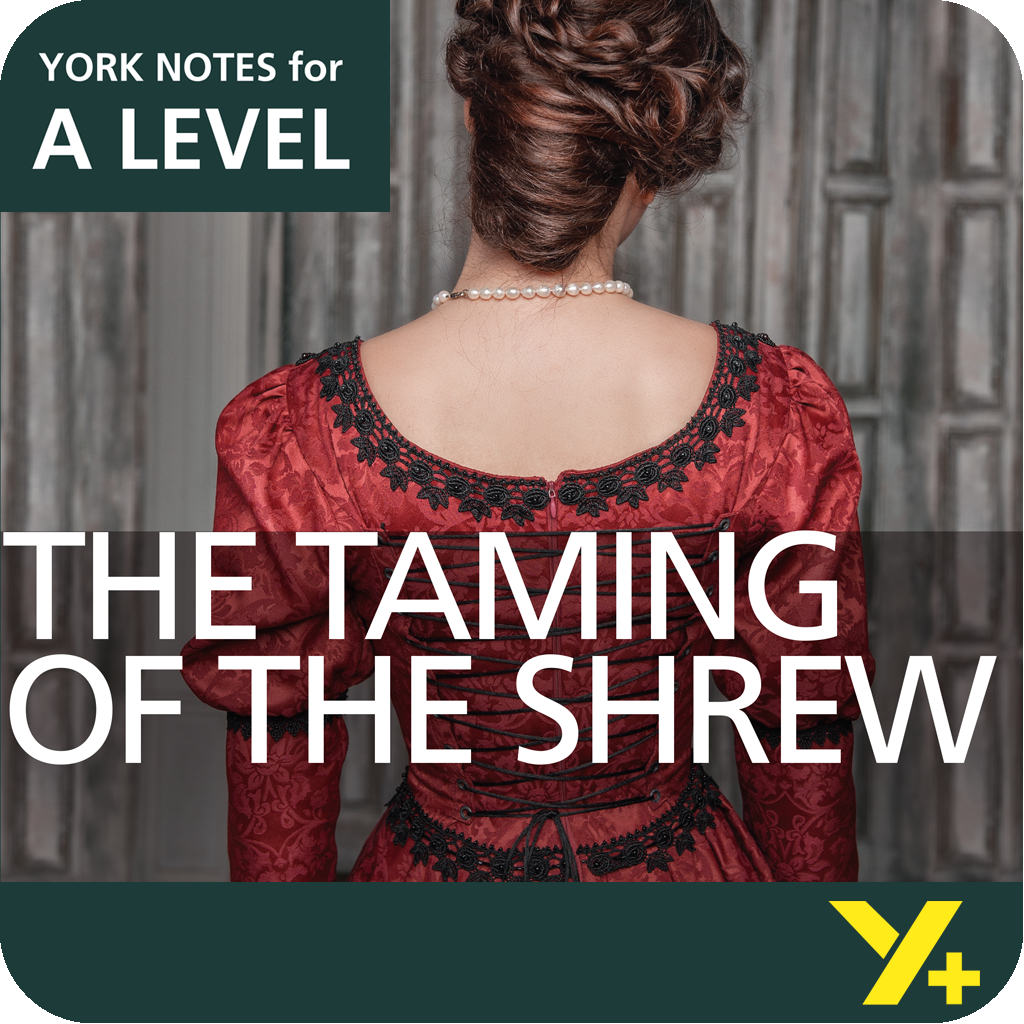Examiner's Notes
You assessed this answer as a Good.
Hover over the highlighted text to read the examiner’s comments. These are linked to the Assessment Objectives, which are listed in the side panel.
Shakespeare’s comedies (and even some of his tragedies) often depend on characters pursuing partners whose parents, generally fathers, object to them for a range of reasons, sometimes personal, sometimes financial. In ‘The Taming of the Shrew’, the commercial aspect appears to be central, but there is evidence of love and companionship, too. Whether economic pressures are stronger than personal ones can also depend on the interpretation which is placed on Shakespeare’s lines by actors. Is Baptista's comment to Petruccio that in addition to money and rank he must win ‘the special thing [...]/That is, her love ...’ a throwaway line, an afterthought, or does it show his care of her?
It is clear from how Shakespeare presents him in Acts I and II, that Baptista wishes to dispense with his daughters as best he can, the natural step of a well-off gentleman. However, Baptista clearly sees an opportunity to link Bianca’s future to Katherina’s – why be left with the wildcat, after all? Financial offerings to suitors hold the best chance of ensuring he avoids this, something Petruccio picks up on: ‘thou knowst not gold’s effect’ he tells Hortensio, when warned about Kate. But perhaps what is more interesting here is that Hortensio would not wed her for a ‘mine of gold’. In this way, Shakespeare suggests that there is a sort of graded valuation placed on Kate: the audience may wonder how much Hortensio would accept?
This idea is continued when Petruccio barters for Kate’s hand with Baptista, although in truth it isn’t much of a negotiation. As ‘solely heir’ to his father's lands and having increased their worth, as well as being of good family, Petruccio ensures the transaction is swift. Petruccio does mention love, but only in asking what he’ll get back:
‘Then tell me, if I get your daughter’s love,
What dowry shall I have with her to wife?’
But there is at least a hint that there needs to be some mutual attraction here, perhaps. However, the ‘get’ of the question is important: does it mean, ‘win’ in an active sense, or ‘receive’ in the passive sense? If ‘win’ this adds to the idea of the market and of Kate being an object, which in Marxist approaches is called ’commodification’. This means she is a commodity or a prize to be argued and negotiated over. This is explicitly referred to by Tranio once Kate is off Baptista’s hands. He says, ‘’Twas a commodity lay fretting by you;/’Twill bring you gain, or perish on the seas.’ This metaphor tells us that Katherina was like ship’s produce which was decaying the longer it was left, and now it has been sold it will either work out profitably for Baptista or bring him more worries. This also reminds us of the risky nature of business and trade in those times, something Elizabethan audiences would have been familiar with through accounts of Drake’s or Raleigh’s voyages.
Market negotiation is equally apparent as Gremio and Tranio (on Lucentio’s behalf) barter for Bianca’s hand. Gremio offers his house, ‘richly furnished with plate and gold,’ and various beautiful cloths and ornaments, as well as the more down-to-earth ‘fat oxen’. He also indicates his age, and that she will inherit all this fairly quickly. Unfortunately, he is out-bid by Tranio, who offers three houses and more land. Interestingly, he does not offer her any promise of inheritance on his death, saying that he’s young, so it is pointless, to which Gremio rightly points out: ‘And may not young men die as well as old?’
Petruccio has already made it clear in Act I Scene 2 that his aim is to marry ‘wealthily’ and that for gold he’ll put up with anything. This seems to be supported by his treatment of Katherina, which seems cruel in the extreme, denying her a glamorous wedding celebration, food, sleep and even fine clothes. All this, on the surface, would seem to support the idea that this is not a play about love. Yet, he doesn’t have to do all these things to get the money he is promised. Once he has married Kate and released Baptista from looking after her, he has fulfilled his side of the bargain. But, it seems he wants to do more. Whether we believe he has her best interests at heart, or whether it is simply about him exerting his power over a woman, it seems that money matters fade very quickly into the background once Kate is his. He even makes the point that, ‘To me she’s married, not unto my clothes’, to excuse his own appearance.
When what he says is juxtaposed with Lucentio’s expressions of love for Bianca, his words seem to be more heartfelt and ‘real’. Lucentio’s words do not have the ring of truth: the three verbs he declaims – ‘I burn, I pine; I perish’ seem to come from a book. In fact, some productions have Lucentio reading these lines from a book of poetry, probably Ovid. It as if Shakespeare wants to question an outmoded model of courtship and marriage.
